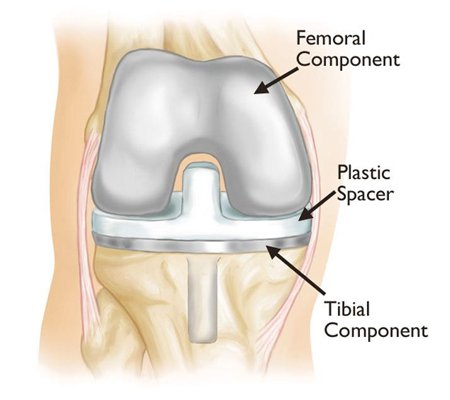Complex Trauma and Joint Replacement Surgeries
Complex Trauma and Joint Replacement Surgeries
Complex trauma refers to severe injuries to bones, joints, and soft tissues, often resulting from high-impact accidents like road traffic collisions or falls from height. These injuries frequently involve multiple fractures or dislocations and require specialized surgical care.
Joint replacement surgery, also known as arthroplasty, involves replacing a damaged or diseased joint with a prosthetic implant. It is commonly performed on joints like the hip, knee, and shoulder when conservative treatments no longer provide relief.
Combining complex trauma care with advanced joint replacement techniques ensures optimal recovery, restoration of mobility, and improved quality of life.

Conditions Treated
Multiple or compound fractures
Pelvic and acetabular injuries
Non-healing fractures (non-union)
Malunited fractures (healed improperly)
Post-traumatic arthritis
Severe joint degeneration or deformity
Failed previous joint surgeries
Treatment Approaches
Internal Fixation (Plates, Screws, Rods): Used for stabilizing complex fractures.
External Fixation: Temporary solution to stabilize severe injuries before definitive surgery.
Primary or Revision Joint Replacement: Total or partial replacement of joints, including re-do surgeries for failed implants.
Computer-Assisted and Minimally Invasive Techniques: Enhance accuracy and reduce recovery time.
Rehabilitation and Physiotherapy: Customized recovery plans post-surgery for optimal mobility.
Benefits of Timely Surgery
Restoration of joint function
Relief from chronic pain
Correction of deformities
Prevention of complications like arthritis or limb shortening
Faster return to daily activities
Frequently Asked Questions (FAQs)
Complex trauma involves multiple or severe musculoskeletal injuries often requiring advanced surgical intervention. It can include fractures with soft tissue damage, multiple broken bones, or joint dislocations.
Joint replacement is considered when the joint is severely damaged due to injury or post-traumatic arthritis, and pain or mobility issues persist despite conservative treatments.
Complex trauma surgeries are more intricate, often involving multiple procedures, use of advanced imaging, and multi-disciplinary care to manage associated complications.
Yes, joint replacement after trauma is safe when done by experienced surgeons. The key is proper planning, evaluation of bone quality, and use of suitable implants.
Recovery varies depending on the patient and type of joint replaced but generally ranges from 6 weeks to 3 months for most daily activities. Full recovery may take up to a year.

